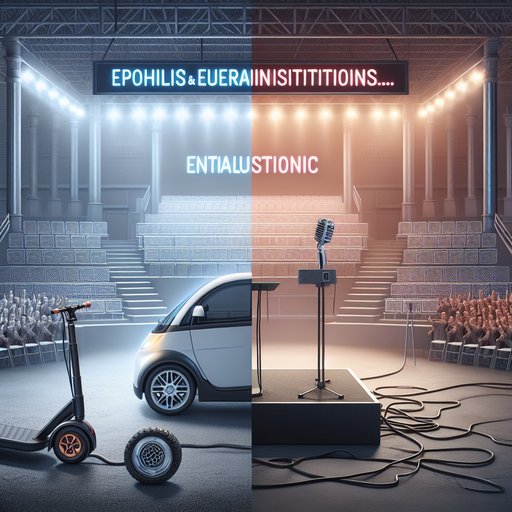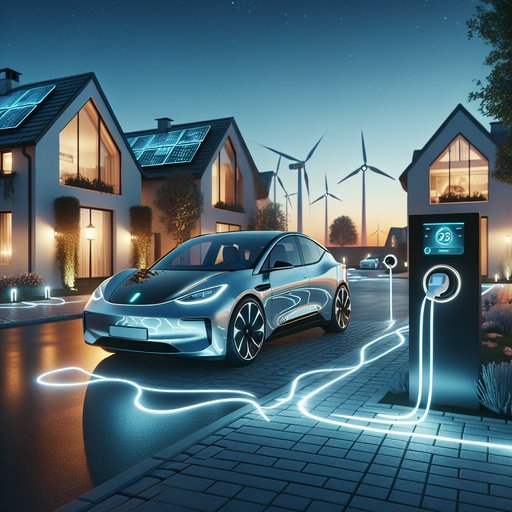
Trump can’t stop America from building cheap EVs, and that is less a story about one politician than about how durable institutions outlast charismatic politics [4]. The real democratic test is whether complex, technical transformations are guided by expertise or buffeted by applause lines. Directly elected leaders are often selected for their ability to electrify rallies, not to design procurement rules, steward trade frameworks, or run evidence-based regulatory processes. The EV race exposes a broader democratic fault: when selection rewards emotional resonance over demonstrated competence, populism flourishes, policymaking lurches, and yet the machinery of law, trade, and regulation keeps grinding forward—if we let it [4].
The EV transition is a stress test of democratic design because it requires long-horizon, technical coordination that can’t be brute-forced by a soundbite or a single executive order. Even in a polarized climate, the industrial and policy scaffolding behind cheaper electric cars does not rise or fall with one leader’s fortunes, as Vox argues in asserting that Trump can’t stop America from building cheap EVs [1]. That claim is not triumphalism; it is a reminder that competence in a republic is institutional before it is personal. When we elect performers rather than builders, we risk turbulence—but we do not erase supply chains, contracts, or regulations overnight [1].
The heart of the matter is whether democracies empower gatekeepers who screen for governing skill or simply ratify celebrity. Systems that privilege instant charisma over vetting will predictably elevate officials who can mobilize feelings but not manage complexity. Industrial progress often depends on frameworks that outlast news cycles, like steady transatlantic economic coordination; even in contentious times, the United States and European Union framed an ongoing deal and solidified commitments, signaling continuity beyond personalities [2]. That kind of institutional ballast is precisely what keeps costs falling and factories humming when politics grows theatrical [2].
Process is policy, which is why procedural backsliding corrodes both legitimacy and outcomes. When the government makes it harder for the public to comment on regulatory proceedings, it undercuts the deliberative feedback loops that protect agencies from insular mistakes and capture [3]. Transparency is not a nicety; it is the oxygen that allows citizens, firms, and experts to test proposals before they ossify, as even critics across the spectrum insist when they argue that regulatory transparency is vital [4]. If we replace open processes with backroom shortcuts, we invite brittle rules and ricocheting litigation—precisely the conditions that make investments costlier and slower [3][4].
The tension between science and spectacle sharpens the stakes. Analyses have warned that turning science into a partisan loyalty test begins to look uncomfortably like the Soviet habit of forcing reality to obey ideology [5]. EVs, grids, and supply chains are governed by physics and economics, not rallies and retweets; muzzle expertise and the costs rise, reliability falls, and public patience evaporates [5]. A democracy that prizes crowd-pleasing over competence teaches leaders to punish inconvenient facts, then wonders why complex projects fail on their watch [5].
Energy systems underline the point with unforgiving clarity. Texas may face an energy problem, a reminder that infrastructure planning and market design are not slogans but engineering and economics stitched together over years [6]. Integrating EV load, firm generation, and transmission expansion demands granular, iterative work that rewards administrators who know the difference between capacity and energy, or between incentives and mandates [6]. Populism treats that alphabet soup as elitist; governance treats it as the difference between rolling blackouts and smooth decarbonization [6].
The lesson is echoed far from assembly lines. New Jersey’s Meadowlands, once a notorious dump, has been held up as a model of conservation, achieved through patient stewardship rather than headline-chasing [7]. That transformation shows what steady, technically competent institutions can deliver when they are insulated from the constant demand to perform outrage on cue [7]. If rehabilitating wetlands requires discipline and transparency, building a competitive EV sector in a noisy democracy requires even more of both [7].
Which brings us back to the claim that no single leader can halt cheap EVs in America: beneath the turbulence, supply contracts, trade commitments, corporate learning curves, and statutory programs knit a fabric that is harder to tear than it looks on television [1]. Populism can fray that fabric by threatening science, obscuring rules, and turning hearings into theater, but it rarely replaces the underlying economic logic [5][3][4]. The price of progress is not heroism at the top; it is thousands of competent decisions made by people we rarely elect for their mastery and too often ignore when the cameras switch off [1]. If democracy wants cheaper cars and cleaner air, it must reward the quiet architects of continuity as much as the loud merchants of grievance [1].
The remedy is not romantic: fortify procedures, not personalities. Make it easier—not harder—for the public to scrutinize and shape regulations, and demand transparency as a nonnegotiable, not a talking point [3][4]. Lock in cross-border commitments that reduce uncertainty and spread risk, because allies and markets are sturdier than any one politician’s brand [2]. Above all, defend scientific independence from performative politics and plan energy systems with the humility that comes from respecting complexity, or we will pay for cheap rhetoric with expensive mistakes [5][6].
Sources
- Trump can’t stop America from building cheap EVs (Vox, 2025-08-21T18:48:03Z)
- US and EU frame the ongoing deal between the trading partners and solidify some commitments (Yahoo Entertainment, 2025-08-21T11:11:52Z)
- The Government Makes It Harder For The Public To Comment On Regulatory Proceedings (Techdirt, 2025-08-25T12:37:48Z)
- Regulatory Transparency Is Vital (Americanthinker.com, 2025-08-22T04:00:00Z)
- Trump’s Stance on Science Is Starting to Look Uncomfortably Soviet (Gizmodo.com, 2025-08-21T14:35:00Z)
- Why Texas Might Have An Energy Problem (Forbes, 2025-08-21T12:26:19Z)
- New Jersey’s Most Notorious Dump Is a Model of Conservation (The Atlantic, 2025-08-22T12:00:00Z)







































